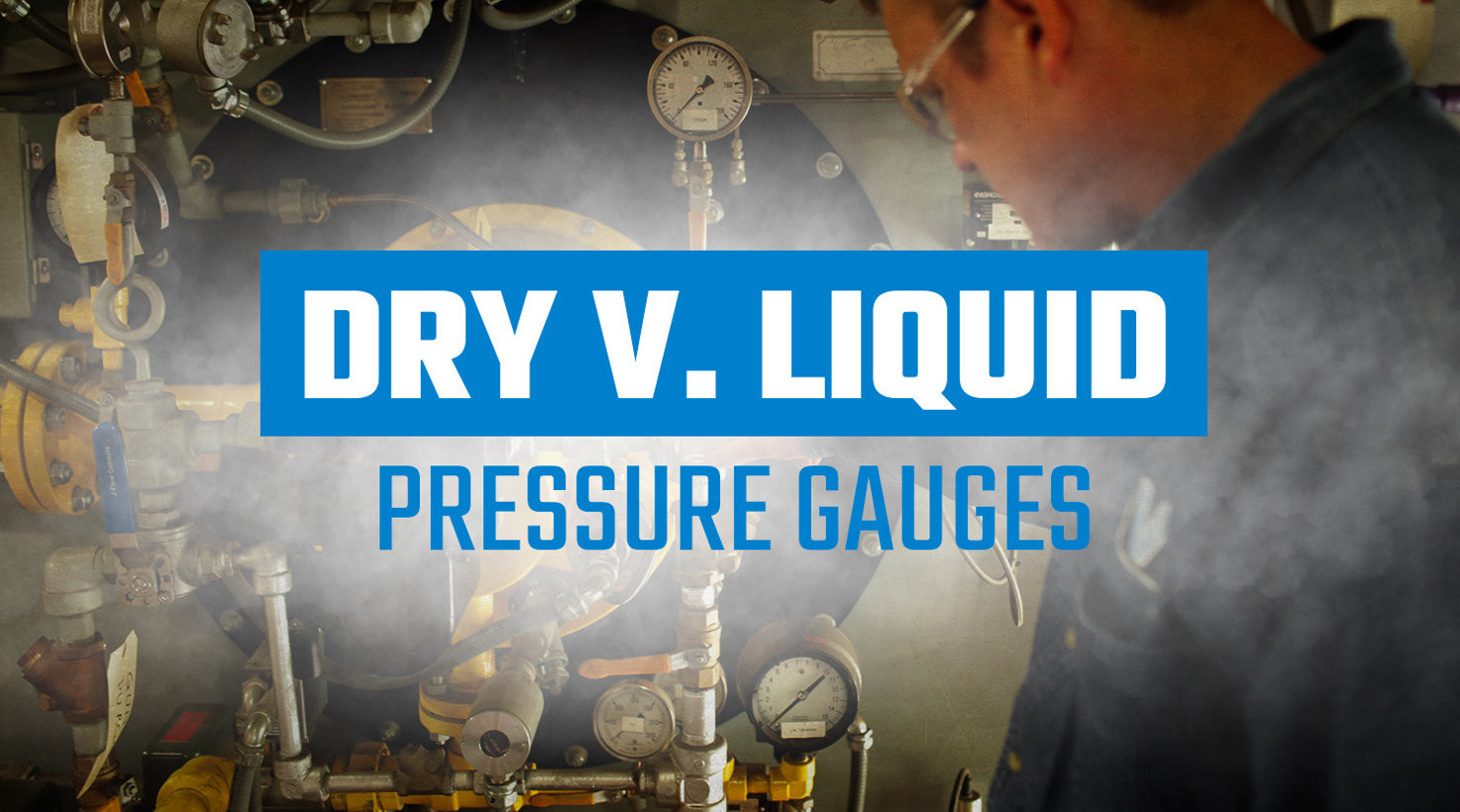Why Is There a Bubble in My Gauge?
Pressure gauges give you a window into what’s going on inside your boiler. They can tell you if it’s operating safely, and if it’s giving you the most out of every fuel dollar. But not all pressure gauges are designed the same way. Some gauges are classified as “wet” while others are considered “dry”. The difference lies in the conditions they’ll be exposed to as they help you keep an eye on your boiler.
Spoiler alert: It all comes down to vibration and application.
WET GAUGES
If you’ve ever picked up a gauge and seen fluid moving around inside the face, where the needle and numbers are, one of two things is true. You’re either looking at a wet gauge, or you’re holding a gauge someone found in a lake. Maybe a pool.
Wet pressure gauges are designed for applications with a lot of vibration. When a gauge vibrates, the needle starts to jump around. That can make it difficult or even impossible to get an accurate reading. To mitigate all that needle-jumping, the gauge face is intentionally filled with fluid – usually glycerin – that acts as a damper. Because of the fluid, the pulses caused by mechanical vibration or sudden short pressure spikes will be absorbed by the fluid, keeping the needle still. However, the fluid is thin enough that slower, steadier pressure changes will still register on the gauge face.
The fluid inside also acts as a lubricant, keeping the parts working together smoothly, and helps protect the gauge internals from corrosion in wet, hot environments. So why the bubble? To prevent leaks. Glycerin expands when it gets warm. If the gauge were filled to the brim, the heat of the boiler room environment would cause the gauge to leak or rupture. Nobody wants to clean that up.
DRY GAUGES
Dry gauges don’t have the dampening fluid in them, because they don’t need it. Dry gauges are designed for applications that subject them to very little stress or vibration, and dryer environments where corrosion is not a concern.
Because the needle isn’t hopping around, it doesn’t need its liquid shock absorber around it. Because it’s not exposed to moisture, there’s little risk of corrosion affecting the internal components and throwing off the readings.
If you have a gauge that needs replacing, our parts department stocks a wide range of them. Our experts will help you find the one that’s right for your application. If you’d like your gauges or any other part of your boiler inspected, the experts at WARE are standing by to help. If your gauges are telling you it’s time for a new or rental boiler, we can help you with that, too. Let us know what we can do.
